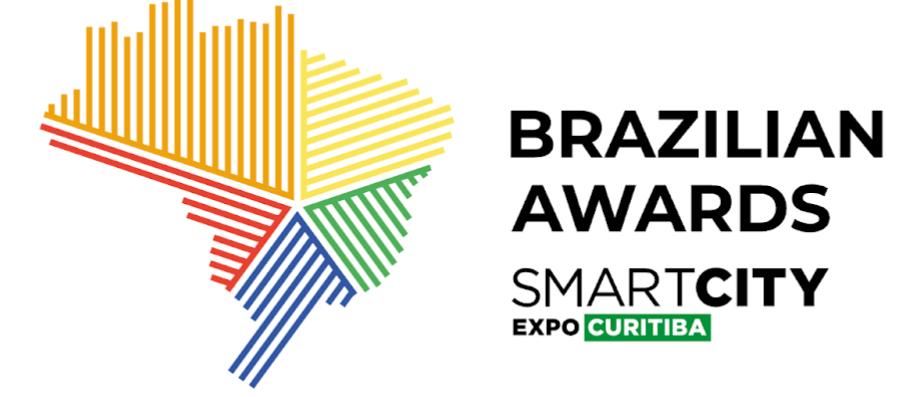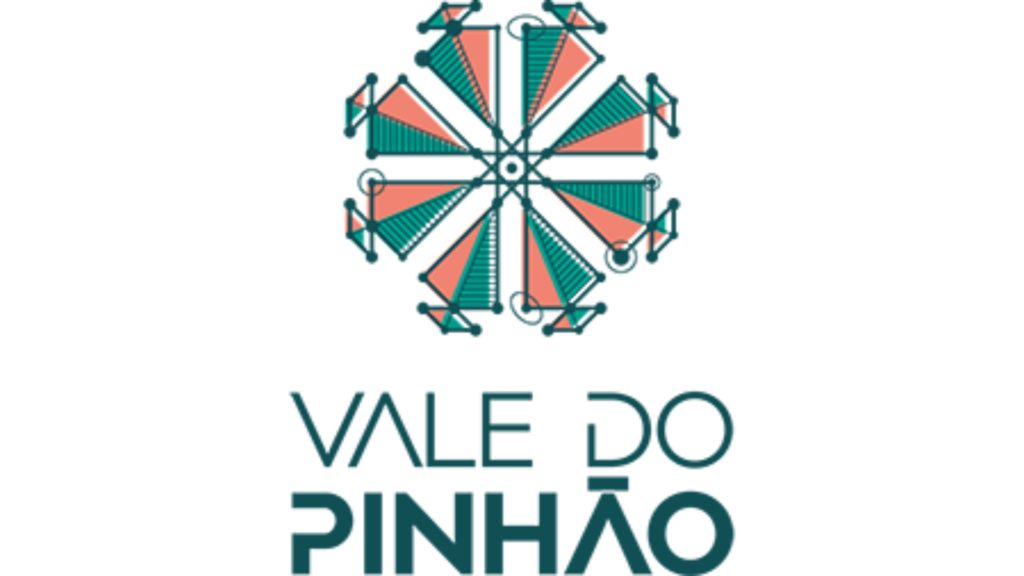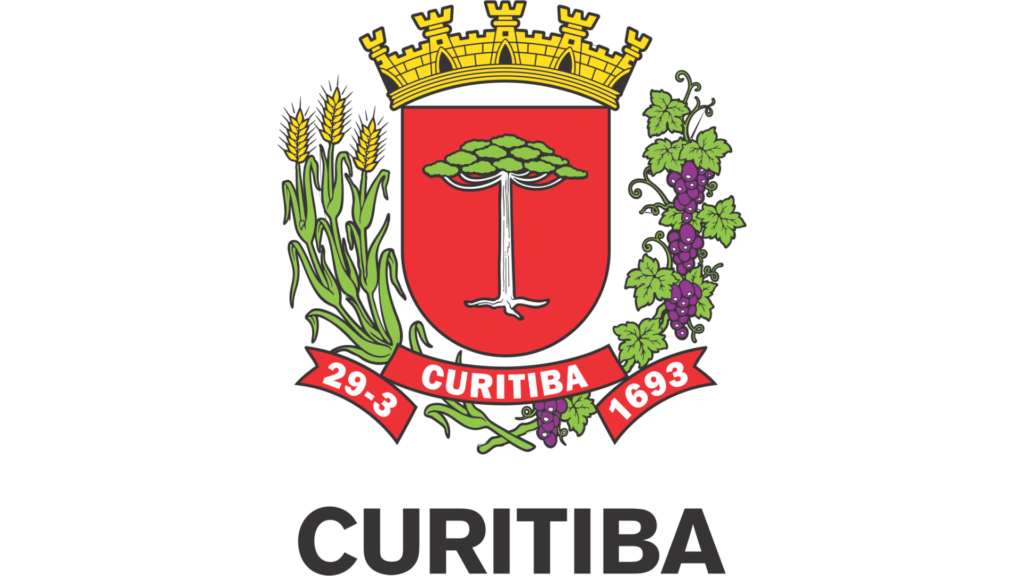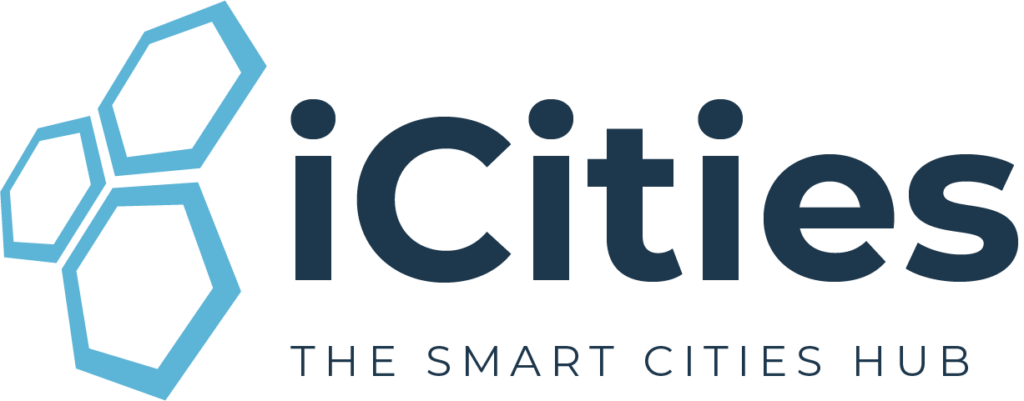Curitiba, March 2024 – The new edition of Smart City Expo Curitiba – promoted by iCities, a pioneering Brazilian company in smart cities, with the endorsement of Fira Barcelona, an international institution with 90 years of history and a reference in global meetings – will bring, in addition to more than 65 exhibitors, something new: the Smart City Expo Curitiba Brazilian Awards, the Brazilian edition of the biggest global award dedicated to smart cities.
The award, held in an unprecedented way in the municipality that won the world award for smartest city, Curitiba, aims to publicize and recognize other Brazilian municipalities that have Cases intelligent and transform lives. Around 300 innovative projects from the five regions of Brazil were registered and public or non-governmental organizations, companies and entrepreneurs, innovation and research centers, as well as public-private consortia that have projects implemented in Brazilian cities, could participate.
“The award for smart cities encourages public management to think in a more modern and efficient way, encouraging the development of our country. Brazil has been increasingly playing a leading role in this topic that is so important for citizens and it is important to highlight that many finalist cases are from small and medium-sized cities, demonstrating that the potential of smart cities is valid for all municipalities”, says Roberto Marcelino, says Director of Government Relations at iCities.
In total, there are 15 finalists divided into the categories: Smart City; Sustainable city; Social Equity; Urban mobility; Digital Transformation and Innovation.
CATEGORIES & PROJECTS
Smart City Award
YES!Recife: created by EMPREL Municipal Informatics Company of Recife City Hall, its objective is to transform the municipality into a Smart City through open innovation, focusing on solving, identifying and mapping major problems. The project maps challenges using methodologies such as Design Thinking, holding interactive workshops with public servants, citizens and external experts. In the 1st Open Innovation Cycle, challenges such as reducing absenteeism in consultations and exams and scalable and real-time identification of defects in road surfaces, for example, stand out.
Rio+: Based on the strategic guidelines of the Smart City Coordination of Rio de Janeiro and strategic objective number 4 of the Brazilian Charter for Smart Cities, the initiative aims to create a series of actions to make the city more sustainable. An example is the creation of an area in the city with low greenhouse gas emissions by 2030, through the promotion of quality urban spaces, with a focus on improving the quality of life and health, encouraging the use of clean transport, active mobility and requalification of public spaces.
Salvador Capital Afro: the SCA emerges as an innovative strategic framework to boost afrotourism in Salvador. The result of a comprehensive listening to 700 black actors and entities, the project developed a Plan for Afrotourism, facing challenges such as disarticulation in the value chain and structural racism. With four main axes – Ecosystem and Business, Training, Strengthening Tourism Products and Promotion – the SCA received US$2,7 million from the IDB, impacting more than 1.500 black entrepreneurs since 2019. With a chronology that includes bidding, execution and partnerships, the initiative stands out as a catalyst for transformation and inclusion, shaping the future of tourism in Salvador and beyond.
Sustainable City Award
Sustainable Forest Backyard: The project is a collaboration between UFOPA and Santarém City Hall. Focused on Eixo Forte, covering communities with burning practices, the objective is to integrate ancestral knowledge about medicinal plants with urban afforestation. Aligned with the SUS National Medicinal Plants Program, it proposes planting trees in communities, contributing to environmental conservation and valorization of the Amazon Biome in a sustainable way.
Moeda Verde Program: led by the city of Santo André (SP), aims to raise awareness among the city's residents, especially those who live in needy communities, about the importance of separating wet and dry waste, in addition to conscious consumption. The idea is to exchange recyclable waste for food. For every 5kg of recyclables delivered, the resident receives 1kg of healthy food.
Energy Efficiency and Transition Program: Hortolândia (SP) implemented a comprehensive energy initiative, guided by a consultancy from Eidee. The Energy Master Plan included efficiency in public lighting, electric mobility and photovoltaic distributed generation. The partnership with Ilumina Hortolândia resulted in 100% LED lighting, saving 56% on energy. 21 photovoltaic plants were installed, reducing the consumption of public energy and municipal buildings. In mobility, the replacement of vehicles with electric ones and the ordering of electric buses aim to reduce 632 tons of carbon dioxide per year.
Social Equity Award
Renault Institute – Geração Futuro Jovens Talentos: Launched in 2019, Geração Futuro is an initiative by the Renault Institute in São José dos Pinhais to address social challenges identified in the Social Map of Borda do Campo. Focusing on professional qualification, income generation and gender equality, the program offers courses and psychosocial support to young people in vulnerable situations. Access via the selection process is aimed at young people aged 15 to 24, enrolled or having completed secondary education at a public school. Those approved receive scholarships, teaching materials, transportation and food, aiming to facilitate entry into the job market and promote integral development.
Develop Itabira Project (MG): the initiative seeks to diversify the economic matrix historically centered on mining. In partnership with the Department of Economic Development, the program aims to train more than 500 software developers, offering free resources such as computers, internet and mentoring. The city hall, assuming costs, accompanies students on their journey, with the goal of positioning Itabira as a technology hub in collaboration with the Federal University of Itajubá. In addition to directly impacting the city's economic data, the project focuses on transforming lives, especially for students with a per capita family income of up to two minimum wages. The approach includes strategic partnerships, bootcamps and internships, promoting significant economic and social change in Itabira.
Compra Londrina Program – Happiness in Smart Public Procurement: Launched in 2016 by the Public Management Secretariat of Londrina City Hall, it aims to change the negative perception associated with the word “bidding”. With the aim of attracting small local businesses to public procurement disputes, the program offers support from understanding the notices to post-bid monitoring. Eliminating fears and promoting a protected environment, Compra Londrina uses favorable local laws and specific advantages for companies in the region. Practical workshops, teleservices, monitoring deadlines and encouraging the reporting of irregularities are some of the strategies applied. The results, confirmed by studies from the State University of Londrina, indicate stories of success and transformation for small businesses, proud to contribute products and services to the city.
Urban Mobility Award
Zero Tariff Program: implemented by DM Educação in Leopoldina (MG), it is an innovative solution to the challenges faced by urban transport in small cities. When dealing with a reduced fleet, impactful ticket prices and limited municipal budgets, the project carries out route studies, adjusts the number of passengers and operates within the municipal budget. By adopting remuneration per kilometer driven instead of per passenger, the program increases transport availability, especially in underserved areas, and improves service hours without overcrowding. The positive effects include flexibility of routes for specific events, such as elections and university entrance exams, as well as an increase in family income, boosting local commerce.
Worker's Cycle Path: The implementation of an active mobility network in Arapiraca (AL), using the old railway line as a central axis, transformed an abandoned area into a vital urban corridor. Initiated by the city council in response to the deactivation of the railway in 1980, the project preserved the tracks, created accessible sidewalks, illuminated and tree-lined cycle paths, promoting integration between residential, commercial areas, schools and public transport. With prior discussion and detailed planning, the work was carried out in stages, prioritizing the preservation of local history. The results include improvements to the urban landscape, safety, increased physical activities, and boosting the local economy around the old railway line.
Smart Mobility Projects in practice: Joinville faces challenges in urban mobility, such as overload on roads, safety issues and pollution. To overcome these problems, the methodology of Smart Mobility Projects, data-driven approach to replace trial-and-error approaches. The results include greater traffic fluidity, reduced accidents and carbon emissions, and savings in public resources. The methodology involves diagnosis with data from Waze and Public Transport Telemetry, prioritization of problems, demand estimation with YOLO technology, development of scenarios, simulations with artificial intelligence, presentation to stakeholders and execution of the chosen proposal. In this specific case, the solution proposed for Monsenhor Gercino and Florianópolis streets, through the implementation of a binary, obtained more than 80% approval in a public consultation and is in the preparation phase of the bidding process.
Innovation and Digital Transformation Award
Collaborative Management of the Municipality of Niterói: the initiative in Niterói (RJ) arose from the perception of the gap between citizen demand for interaction with public authorities and the available channels, predominantly analogue. In partnership with the startup COLAB, a listening and collaboration strategy was implemented using social networks, apps and other channels. With more than 60 public consultations carried out in five years, citizen participation has become fundamental in the city's management, impacting important decisions, such as the Multi-Year Plan. During the pandemic, the strategy was crucial in scheduling almost 200 doses of vaccines, strengthening the relationship between government and society. The continuous growth in the number of registered demands reflects the strengthening of collaboration between the government and the population.
Araguaína 4.0: The City That Doesn’t Stop: In recent years, the city of Araguaína (TO) has prioritized innovation and modernization of public services. The tax reform and Economic Freedom decree accelerated the opening of companies. International training in Digital Government and the integration of services into GOV.BR marked significant advances. The strategic hiring of the startup GOVTECH and the introduction of the IARA virtual assistant with AI have modernized and made government operations more efficient. Actions such as training with GPT-4, participation in international events and joining the Blockchain Brazil Network reinforced the city's innovative position. The results are evident, with economic growth, improvements in communication, transparency, efficiency in public service, increased revenue and the implementation of a municipal 5G network, highlighting the city as a reference in innovation.
Janitorial Management System (SGZ) in São Paulo (SP): The SGZ, developed in 2017, underwent improvements and regulation, resulting in an initial investment of around 8 million reais and another 5 million during the assisted operation in 2018. Since 2019, approximately 1 million reais have been allocated annually to new developments, improvements and system maintenance. The platform promotes management efficiency, with budget control, georeferenced monitoring and integration with legacy systems, optimizing financial resources and ensuring accurate information.
The awards ceremony that will reveal the winners will be held at Teatro Positivo, in Curitiba, on March 21st at 19pm.
Under the motto “Reinventing cities for all”, the initiative has the support of Vale do Pinhão and Curitiba City Hall. The importance of the event is so great for the city that, on these days, the mayor of the city moves his office to the Expo, even taking his entrance mat. Companies such as Arlequim, Intelbras, ICI, Ligga, SEBRAE, Government of the State of Paraná, SP Negócios, Polkadot and INTEL signed as Global Partners of Smart City Expo Curitiba. For more information about the agenda, lectures, among others, visit the website the event.
ABOUT ICITIES
iCities is recognized as the pioneering company in smart cities in Brazil and, with more than 12 years of experience and headquartered in Curitiba, the organization aims to provide a better quality of life for citizens, believing that smart people create smart cities. The company focuses its efforts on uniting stakeholders for the development of innovative projects and solutions in cities. Having a wide range of partnerships and contracts with companies and government, iCities works from studying and surveying demands to identifying specialized companies for the most diverse solutions for improving smarter cities. Furthermore, it stands out in the academic area with executive training programs on related topics, through Smart City Expert and the Innovation Program for Public Management (PIGP). As holders of the seal of Fira Barcelona in Brazil, an international institution with 90 years of history and countless global events, iCities celebrates its great success story, the Smart City Expo Curitiba.
For more information contact us:
Osmar Barros
(11) 94286-0786













